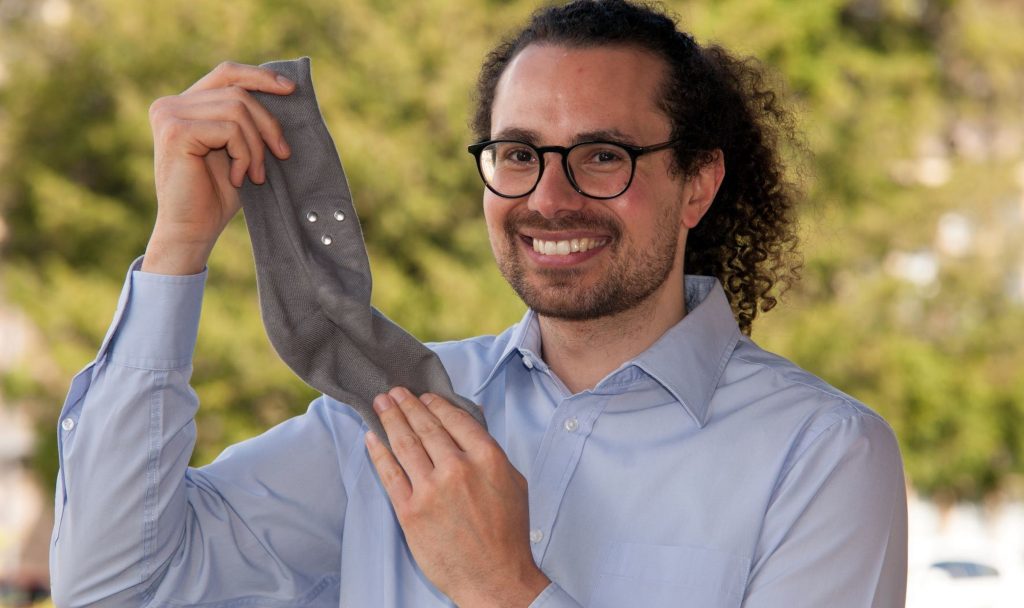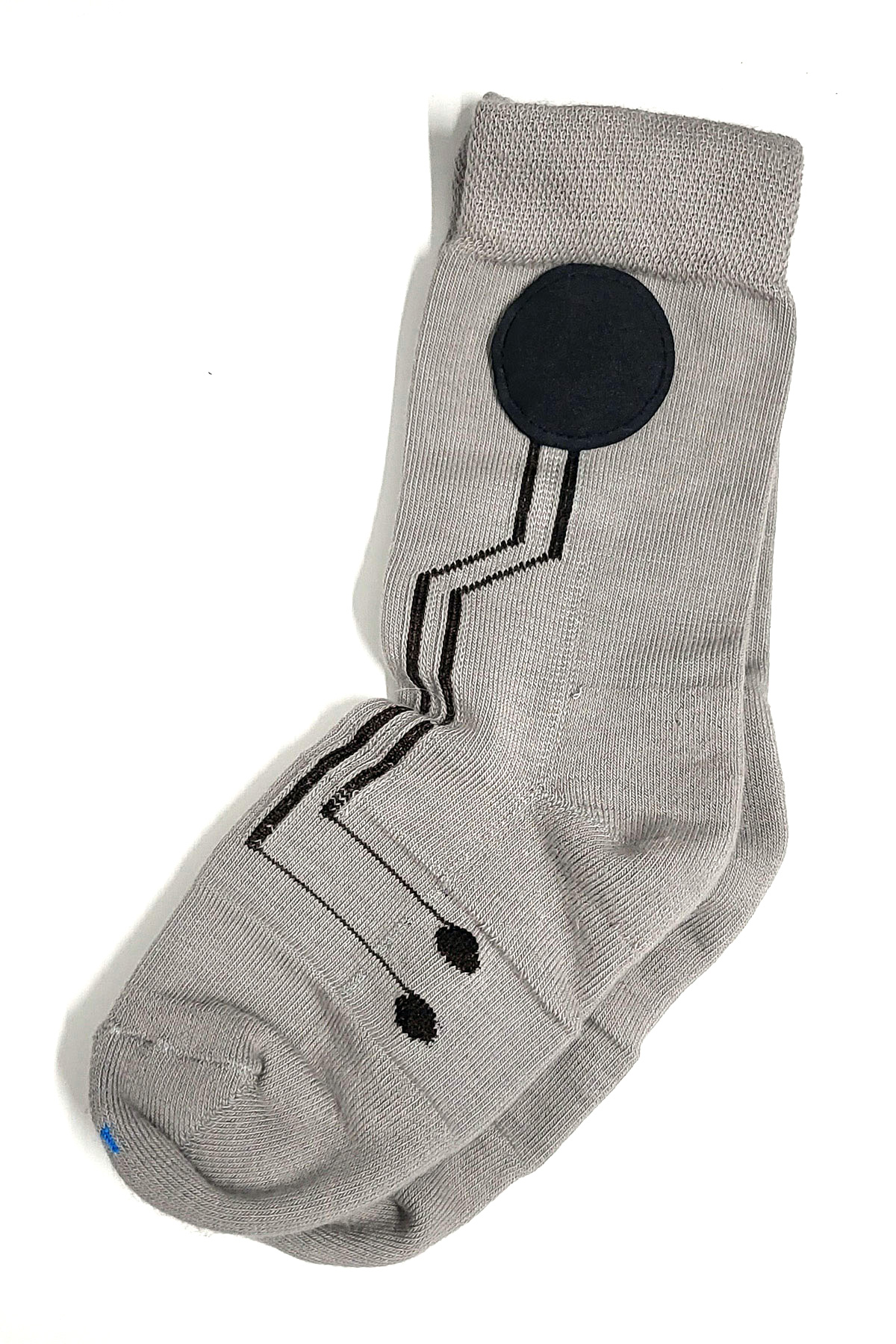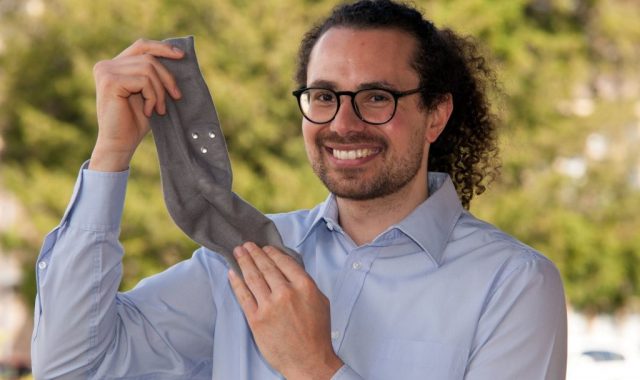
By Ed Cullinane
Dementia patients could continue to live at home and be monitored with new AI smart socks.
Researchers at Exeter University say the “SmartSocks” can track the heart rate, sweat levels and motion of people wearing them.
It would allow carers to identify when vulnerable people are in distress.
Trials of the new tech by care technology start-up Milbotix are set to begin soon – in homes and care homes.
Unlike trackers currently used for similar purposes, smart socks look exactly like real socks – removing the stress and discomfort of bulky monitors often removed by patients.
They’re even machine washable, don’t require charging – and can check the cognitive state of patients, which no current devices are able to do.

The socks were invented after a collaboration project between Milbotix and the University of Exeter.
SmartSock inventor Dr. Zeke Steer, Chief Executive Officer of Milbotix, came up with the concept after witnessing his great-grandmother’s battle with dementia.
He said: “I came up with the idea for SmartSocks while volunteering in a dementia care home.
“The current product is the result of extensive research, consultation and development.
“So far SmartSocks have been incredibly well-received in care settings, and I’m excited to see what impact our products can have in providing early alerts of agitation and falls, enabling care home staff to take early intervention.
“The foot is actually a great place to collect data about stress, and socks are a familiar piece of clothing that people wear every day, our research shows that socks can accurately recognize signs of stress – which could really help not just those with dementia, but their carers too.”
A second study into the device is being run by the UK Dementia Research Institute Care Research & Technology Centre at Imperial College London, aiming to create a ‘smart home’ service called Minder that allows dementia patients to live at home.
A planned trial using the SmartSocks involving 15 people living at home with dementia is already in the works – while care homes across the South West are already testing out the devices in homes run by Southern Healthcare.
Margot Whittaker, Director of Nursing and Compliance at Southern Healthcare group, said: “I think the idea of SmartSocks
is an excellent way forward to help detect when a person is starting to feel anxious or fearful.
“At Southern Healthcare, we are always looking at ways of improving the experience for our residents, and we’re committed to ensuring evidence-based care. This pilot certainly contributes to this goal.”
Sarah Daniels, Health and Social Care Lead at the UK DRI Care Research & Technology Centre at Imperial College London, says that the technology is an ‘exciting’ development in an increasingly important sector.
She said: “Wearable devices are fast becoming an important way of monitoring health and activity.
“At our center, we have been trialing a range of wristbands and watches. However, these devices present a number of challenges for older adults and people affected by dementia.

“They don’t hold charge for long; people often remove and subsequently misplace them. We have also found that those who like to wear a watch, prefer to wear their own and that those with more fragile skin, are at risk of pressure areas and skin irritation.
“SmartSocks offer a new and promising alternative that could avoid many of these issues.
“I am excited to be involved in this project and look forward to working with the product around the acceptability and accessibility for people affected by dementia.”
Produced in association with SWNS Talker




